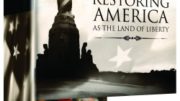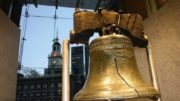June 26
The U.S. Supreme Court ruled today in favor of religious liberty in Trinity Lutheran Church v. Pauley and voted 7-2 that excluding the Trinity Lutheran Church from public grant program violates the First Amendment’s Free Exercise Clause and the Fourteenth Amendment’s Equal Protection Clause.
This ruling reverses the Eighth Circuit Court’s previous decision. Justice John Roberts wrote the opinion and stated that, although the state’s policy “is nothing so dramatic as the denial of political office,” “the exclusion of Trinity Lutheran from a public benefit for which it is otherwise qualified, solely because it is a church, is odious to our Constitution all the same, and cannot stand.”
Supreme Court Justice Neil Gorsuch, who replaced Justice Antonin Scalia, took the bench on April 19 in time to participate in the oral arguments for this major case involving the free exercise of religion. Gorsuch and Thomas joined the entire opinion except footnote 3, which states:
“This case involves express discrimination based on religious identity with respect to playground resurfacing. We do not address religious uses of funding or other forms of discrimination.” Justice Gorsuch explained he did not support footnote 3 because, while it is true as stated, it “leaves open the possibility a useful distinction might be drawn between laws that discriminate on the basis of religious status and religious use…. I harbor doubts about the stability of such a line. Does a religious man say grace before dinner? Or does a man begin his meal in a religious manner? Is it a religious group that built the playground? Or did a group build the playground so it might be used to advance a religious mission?” Gorsuch goes onto write that he cannot “see why the First Amendment’s Free Exercise Clause should care. After all, that Clause guarantees the free exercise of religion, not just the right to inward belief (or status).” Finally, Gorsuch writes that to the extent some might read footnote 3 applies “only: with ‘playground resurfacing’ cases, or only those with some association with children’s health and safety or health, or perhaps some other social good we find sufficiently worthy…” he cannot join in the footnote. “Such a reading would be unreasonable for our cases are ‘governed by general principles, rather than ad hoc improvisations.’”
Trinity Lutheran Church of Columbia, Missouri, represented by Alliance Defending Freedom, operates a preschool and daycare with a public playground and applied to a state grant program that helps nonprofits install recycled rubber playground surfaces. The church applied for the Missouri Scrap Tire Program in 2012 to replace the gravel surface of its playground to provide a safer and more accessible playground for children. However, the Missouri Department of Natural Resources rejected its application, citing a clause in Missouri’s state constitution that bars the use of state funds “directly or indirectly, in aid of any church, sect or denomination of religion,” despite having ranked it fifth out of 44 submissions in a competition that resulted in 14 grants. The church sued in federal district court, arguing that its exclusion was a violation of free-exercise and equal-protection rights. The district court rejected Trinity Lutheran’s claims, ruling that to do otherwise would raise “antiestablishment concerns.”
Liberty Counsel filed an amicus brief in the U. S. Supreme Court, on its own behalf and for the National Hispanic Christian Leadership Conference-CONEL, to end discrimination against churches.




